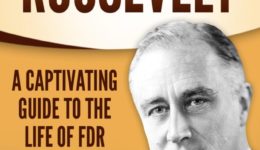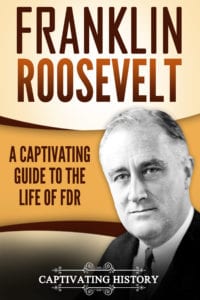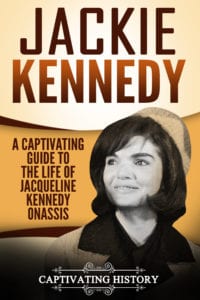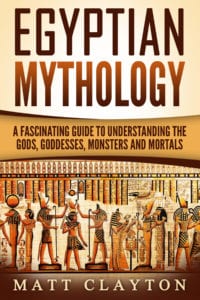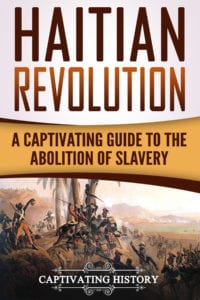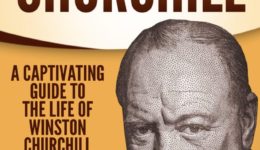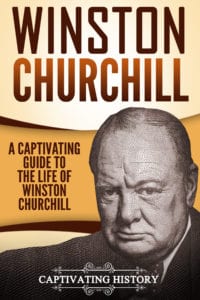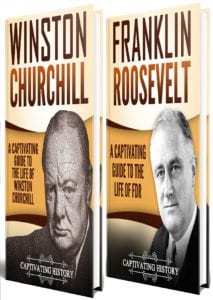Franklin D. Roosevelt’s Childhood and Education
On January 30, 1882, Franklin Delano Roosevelt, named for his mother’s uncle Franklin Hughes Delano, [i] was born the only child of James Roosevelt and Sara Ann Delano in the Hudson Valley of Hyde Park, New York, at the Roosevelt estate that overlooked the Hudson River, seventy-five miles north of New York City. When his son was born, James Roosevelt wrote in Sara’s diary: “At quarter to nine my Sallie had a splendid large boy, but was unconscious when he was born. Baby weighs ten pounds without clothes.”[ii] For a moment, the family was in a tight spot. The mother and child came very close to dying, as the doctor administered too much chloroform due to Sara’s intense labor pains. Franklin was not breathing at birth.
Soon overcoming the birth issues, Roosevelt grew up healthily in a privileged family. The estate had been in the family’s possession for one hundred years. Both his parents derived from very wealthy and old New York families of English descent. American businessman and horse-breeder, James Roosevelt I worked primarily in the coal and transportation businesses, and he served as vice president for the Delaware and Hudson Railway and also served as president for the Southern Railway Security Company. As the inheritor of a good bit of wealth and a man who held a distaste for the business world, he retired early to the family estate and focused on his health, which was not always well. His family was Dutch, first appearing in America in 1654. Sara Ann Delano was James Roosevelt’s second wife, and she devoted her life to caring for her son. Her family was Flemish and arrived in Massachusetts earlier than the Roosevelts appeared in New York. Their families had close ties over the years. Franklin D. Roosevelt’s parents were related long distance as sixth cousins.[iii]
At the Roosevelt estate, Franklin spend most of his time with his mother; he grew up in a very patriarchal household. Sara was very protective of her son, while James was relatively absent, although biographer James MacGregor Burns notes that he was more involved than many of his fellow fathers.[iv] Regardless, Roosevelt’s mother remained his primary caretaker and influencer for his formative years, neglecting other life and wife duties. Over the years, she formed what some may consider an unhealthy relationship with her son and grew jealous of anyone who held his attention. First and foremost, she wanted to be the most important person in his life and shunned away others, including family. Sara is cited as saying, “My son Franklin is a Delano, not a Roosevelt at all.”[v]
As many of his status, Franklin did not lack the benefits of his family’s privilege. As a five-year-old, Roosevelt visited the White House with his father where President Grover Cleveland told him, “I have one wish for you, little man, that you will never be president of the United States.” Little did President Cleveland know that Franklin would hold the record for the most terms in office. In the summers, Roosevelt and his mother spent their days in Fairhaven, Massachusetts, at the Delano Homestead, and every year, Roosevelt’s family would travel to Europe where he grew fluent in German and French and the family toured churches, museums, and palaces.[vi],[vii] During this time, Roosevelt began formulating opinions on other countries and their people. Franklin loved France, along with the people who lived there. On the other hand, he claimed that Germany and its citizens were rude and that they constantly said they were better than everyone else. There is a possibility that he inherited his opinions on Germany from his parents who thought that the people were “filthy … German swine.”[viii]
During his formative years, Roosevelt dabbled in many sports and hobbies. He learned to shoot, row, ride horses, and play lawn tennis and polo. In his teenage years, he took up golf and learned to sail.[ix] As befitting the son of a wealthy household, Roosevelt received a sailboat named New Moon from his father when he turned sixteen.[x] In his early childhood, Roosevelt received his education at home from private tutors. During this time, he learned varying amounts of French, German, and Spanish, as this was the time that his family traveled often.
Many young men began their boarding schools at twelve, but that idea made Sara incredibly nervous. When he reached the age that his mother considered appropriate, which was fourteen years old, Franklin enrolled in an Episcopal boarding school, Groton School, in Groton, Massachusetts, known as the “bastion of the elite,” and he learned alongside students from many other wealthy families.[xi] In fact, ninety percent of the attendees were on the social register, a United States document, now outdated, that provides a directory of prominent American families. The document includes members of the social elite who lived within the boundaries of the American upper class, those of “old money” who identify as White Anglo-Saxon Protestants (WASPs).
Here at Groton, Franklin formed a bond with Endicott Peabody, the headmaster who encouraged Christians to engage public service and provide assistance to those less fortunate than them. He said, “If some Groton boys do not enter political life and do something for our land, it won’t be because they have not been urged.”[xii] Peabody was a champion of independent thought, stating that he held no opinions but instead upheld his beliefs, which he claimed were always true and beyond question.[xiii] Of Peabody, Roosevelt later said, “It was a blessing in my life to have the privilege of [his] guiding hand.”[xiv] He went as far as to write Peabody a letter after gaining presidency, saying, “For all that you have been and are to me I owe a debt of gratitude.”[xv] Peabody remained in Franklin’s life, serving as the officiate at his wedding and paying a visit to Roosevelt during his presidency.[xvi]
Although he formed a great bond with the headmaster, Franklin gained little attention while in school. The other students thought he was showy, too eager to gain teachers’ attentions. In an attempt to fit in, Franklin purposely garnered demerits in the classroom for small offenses, such as whispering during class time.[xvii] His best work was elsewhere, though. While Franklin did not excel in baseball, he stood out as an excellent manager, which helped his leadership skills flourish. In addition, he was a good orator, which allowed him to go far in the debating society. Peabody claimed that Roosevelt was “a quiet, satisfactory boy of more than ordinary intelligence, taking a good position in his form but not brilliant.”[xviii] Recalling little about him that stood out, another classmate said he was “nice, but completely colorless.”[xix] What others did notice was that Roosevelt was the only student who self-identified as a Democrat, which followed a family tradition.
Along with many of his classmates, Franklin began Harvard College in 1900 in Cambridge, Massachusetts, [xx] where he joined the Alpha Delta Phi fraternity[xxi] and the Fly Club,[xxii] along with the Signet Society and the Hasty Pudding Club. He majored in history and political science while in college but showed no express interest in college work itself, and often cut classes. In fact, he escaped out a window during one lecture and climbed down a fire escape while the professor had his attention elsewhere. Therefore, he kept a “gentleman’s C” in most classes, which means that he barely managed to pass. Just as at Groton, Roosevelt’s classmates at Harvard held various opinions on him. One of his cousins, Alice, said, “He was a good little mother’s boy whose friends were dull, who belonged to the minor clubs, and who never was at the really gay parties.”[xxiii] In light of such, Franklin had to earn his name elsewhere.
Roosevelt gained the titles of president and editor of The Harvard Crimson, Harvard’s daily newspaper, during his last year. In this position, he learned leadership and responsibility while developing a taste for ambition. The staff members said that he was “a king of frictionless command,” a trait that followed Roosevelt throughout the rest of his life.[xxiv]
Looking back on his classes, Roosevelt said, “I took economics courses in college for four years, and everything I was taught was wrong.”[xxv] He graduated in 1903 with a Bachelor of Arts degree in history. In 1904, Roosevelt gained entry into Columbia Law School but decided to quit in 1907 after he passed the New York State Bar exam. In 1929, Franklin received an honorary LL.D. from Harvard,[xxvi] and he received a posthumous J.D. from Columbia Law School.[xxvii]
Want more?
Click here to download the book for free on Amazon
[i] “Roosevelt’s Genealogy.” Franklin D. Roosevelt Presidential Library and Museum. http://www.fdrlibrary.marist.edu/archives/resources/genealogy.html. Accessed 19 June 2017.
[ii] Marrin, Albert. FDR and the American Crisis. 2015.
[iii] Burns, James MacGregor. Roosevelt. 1956.
[iv] Burns, James MacGregor. Roosevelt. 1956.
[v] Burns, James MacGregor. Roosevelt. 1956.
[vi] Smith, Jean Edward. FDR. 2007.
[vii] Marrin, Albert. FDR and the American Crisis. 2015.
[viii] Marrin, Albert. FDR and the American Crisis. 2015.
[ix] Smith, Jean Edward. FDR. 2007.
[x] Black, Conrad. Franklin Delano Roosevelt: Champion of Freedom. 2005.
[xi] Marrin, Albert. FDR and the American Crisis. 2015.
[xii] Marrin, Albert. FDR and the American Crisis. 2015.
[xiii] Marrin, Albert. FDR and the American Crisis. 2015.
[xiv] Burns, James MacGregor. Roosevelt. 1956.
[xv] Marrin, Albert. FDR and the American Crisis. 2015.
[xvi] Gunther, John. Roosevelt in Retrospect. 1950.
[xvii] Marrin, Albert. FDR and the American Crisis. 2015.
[xviii] Smith, Jean Edward. FDR. 2007.
[xix] Gunther, John. Roosevelt in Retrospect. 1950.
[xx] Gunther, John. Roosevelt in Retrospect. 1950.
[xxi] “Family of Wealth Gave Advantages.” New York Times. 13 April 1945. http://www.nytimes.com/learning/general/onthisday/bday/0130.html. Accessed 20 June 2017.
[xxii] Gunther, John. Roosevelt in Retrospect. 1950.
[xxiii] Marrin, Albert. FDR and the American Crisis. 2015.
[xxiv] Marrin, Albert. FDR and the American Crisis. 2015.
[xxv] Burns, James MacGregor. Roosevelt. 1956.
[xxvi] “Obama Joins List of Seven Presidents with Harvard Degrees.” Harvard Gazette. 6 November 2008. http://news.harvard.edu/gazette/story/2008/11/obama-joins-list-of-seven-presidents-with-harvard-degrees/. Accessed 20 June 2017.
[xxvii] Kelly, Erin. “Presidents Roosevelt Awarded Posthumous J.D.s.” Columbia Law School. 25 September 2008. http://www.law.columbia.edu/media_inquiries/news_events/2008/september2008/roosevelt_jds. Accessed 20 June 2017.
